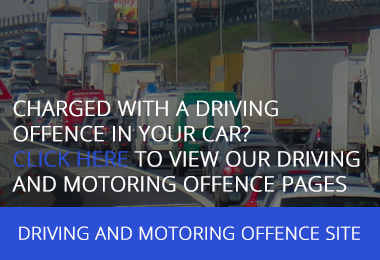What Type of PSV Licence do I Need?

Every year hundreds of Public Service Vehicle (PSV) operators are called to Public Inquiry with the Traffic Commissioner. A great many of these relate to the improper use of a restricted operator’s licence. An operator running PSVs under an incorrect licence can quickly find that licence revoked. It is therefore crucial that all operators know the rules if they are to avoid falling foul of the Traffic Commissioner.
When do I need a Restricted PSV Operator’s Licence?
You can operate under a restricted licence if:
1. You use PSVs not adapted to carry more than 8 passengers; or
2. You use PSVs not adapted to carry more than 16 passengers, provided they are used
- otherwise than in the course of a business of carrying passengers, or
- by a person whose main occupation is not the operation of PSVs adapted to carry more than 8 passengers.
A restricted licence allows you to operate vehicles both nationally and internationally, however the maximum number of vehicles you can operate is limited to two.
[Be aware, there are limited circumstances in which a vehicle carrying 8 or fewer passengers can be a PSV. For more information on this speak to one of our lawyers today]
Beware the “Main Occupation” Requirement!
If you operate PSVs adapted to carry more than 8 passengers as part of a passenger carrying business, or as your main occupation, you CANNOT do so under a restricted licence. You must get a standard licence.
Identifying your business or main occupation is normally obvious. For example; a person or business which receives 100% of its income through operating minibuses adapted to carry more than 8 passengers cannot do so under a restricted licence. Likewise, a hotel business which makes 90% of its income from hotel guests and only uses a minibus to occasionally take guests to and from the airport almost certainly can operate under a restricted licence.
Between these two extremes however, there is a grey area where it is not always easy to identity your business or main occupation. Thankfully, the The Upper Tribunal has laid down some guiding principles.
What is my “Main Occupation”?
If you are not sure whether operating PSVs is your “main occupation”, ask yourself the following questions:
- Does operating PSVs meet the definition of “occupation” in the Oxford English Dictionary?
- What hours do you dedicate to operating PSVs? How does this compare to the hours dedicated to any other work you carry out?
- What percentage of your income is generated by the operation of PSVs? How does this compare to the percentage of your income generated by other non-PSV work?
There is no hard-and-fast rule, and each case will turn on its own facts. If you are in any doubt however, seek advice from a specialist transport lawyer. The consequences of getting it wrong are very serious.
What about a Standard Licence?
A standard PSV operator’s licence authorises the use of any type of PSV. There is no limit to the number that may be operated under the licence (provided you have the room on your authorisation) and there is no main occupation requirement. This is the licence you will need if you intend to operate a passenger carrying business using vehicles in excess of 8 passenger seats.
There are a number of significant differences between a Standard Licence and a Restricted Licence, one of the main differences is the requirement to have a professionally competent Transport Manager. Whilst at first this may seem like an added burden, in reality it can be invaluable to have a Transport Manager on hand to ensure compliance problems are picked up and fixed. For this reason, Traffic Commissioner’s often extol the benefits of applying for a standard licence, even for businesses which would otherwise be eligible for a restricted licence.
Still Confused? – Expert Advice is on Hand
If in doubt, it is always better to get expert advice than to stick your head in the sand. Speak to one of our transport lawyers today for a free initial consultation. Our lawyers at Smith Bowyer Clarke are specialists in PSV and HGV law, including:
- Public Inquiries with the Traffic Commissioner
- Driver Conduct Hearings
- Applying for or varying operator licences
- Compliance audits and assistance
- Interviews under caution
- Stops, inspections and Fixed Penalties
- Reclaiming seized vehicles
- Criminal Defence
Fixed fee arrangements available.


